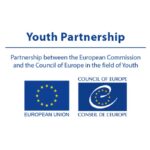Call for researchers “Research on young people’s participation and digitalisation”
29 August 2022
Image is illustrative
The EU-Council of Europe Youth Partnership is looking for two consultants to work on the research on the topic of young people’s patterns of participation and activism connected to digitalisation, use of digital tools and spaces for activism, advocacy and participation, their potential and limits. Deadline for applications 11 September 2022.
The process aims to contribute to a better understanding of the phenomena, and to formulate the implications for all relevant actors, including those in youth work, youth policy, research and other relevant fields.
The researchers will:
- Carry out a literature review of the existing data in order to identify and map the main themes, priorities and trends relating to political participation of young people in the context of digitalisation, use of digital tools and spaces for activism, advocacy and participation, their potential and limits
- Explore and present relevant examples on the topic of young people’s political participation in the context of digitalisation across the EU and the Council of Europe member states
- Highlight the implications of the findings for youth policy, practice and further research
- Support the dissemination of the study and present the findings at relevant events
Expertise and profile of the consultants
- A good understanding and knowledge of youth political participation, in particular and elements related to digitalisation and the use of digital tools and spaces by young people, within the context of the EU and the Council of Europe member states
- strong research, analysis and writing skills, and ability to translate knowledge and findings in an easily understandable language for wider audiences
- Excellent writing and editing skills in English.
Background and rationale
The EU-Council of Europe Youth Partnership broadly defines political participation as “any activity that shapes, affects, or involves the political sphere” (EU-Council of Europe youth partnership, 2019). This refers to every opportunity and space where young people have influence on anything that affects their lives- politics, decisions, relationships, or active engagement of young people in their communities. This broad definition highlights that political participation has many diverse forms. It can be conventional and unconventional, including activities such as voting, being members of political parties, serving on a local youth council, engaging through a youth organisation, or taking part in online political activism, boycotts or a protest movement. All these activities are aimed at influencing political decisions.
Political participation today is taking place within the context of a shrinking space for civil society, rapid digitalisation, advancement of populist ideologies, increased inequalities, and a rise of global youth movements. Young people seem to be more interested in joining loose interest groups rather than NGOs and political parties, and they use social media and digital tools to organise and share information. They mobilise around issues such as climate change, violence and social injustice. Contemporary forms of young people’s political participation may not always be recognised as legitimate, or even as participation.
In 2019 the EU-Council of Europe youth partnership organised a symposium “The future of young people’s political participation: questions, challenges and opportunities”, with more than 120 participants from across Europe, to explore the landscape of young people’s political participation in a changing world and produce knowledge relating to the observed and anticipated trends, their reasons and consequences. The knowledge gathered and produced in 2019, including the literature review on political participation, young people’s Visions of the Future, the Compendium of practices, report from the Symposium, videos and animated videos, infographics and webinars, was further complemented by a study Meaningful youth political participation in Europe: concepts, patterns and policy implications, developed in 2020/2021 and promoted throughout 2021 and 2022, examining both the conventional and non-conventional type of participation and their implications for the youth policy, and youth-friendly version Insights into meaningful youth political participation.
A Youth Knowledge Book on the same topic was also commissioned and is currently in the production process. Additional work has been done on exploring young people’s participation in the context of Covid-19 pandemic and new forms of participation (both upcoming).
Purpose and expected outcomes
In 2022 and 2023, the research on youth political participation will be taken further, focusing specifically on youth participation in the context of digitalisation, use of digital tools and spaces for activism, advocacy and participation, their potential and limits.
The process aims to contribute to a better understanding of the phenomena, and to formulate the implications for all relevant actors, including those in youth work, youth policy, research and other relevant fields. This will be done by building up on previous work of the Youth Partnership since 2018 in the areas of political participation, digitalisation and social inclusion, and limits of digital youth work. Cooperation with other relevant stakeholders will be ensured and researchers will keep in mind the priorities of the Council of Europe Youth Sector Strategy 2030 and EU Youth Strategy 2019-2027.
The research will also take into due account data from Eurobarometer, relevant research from the European Commission, the European Youth Forum, SALTO PI, and others.
Tentative timeline
- Preparatory meeting of the expert group and researchers, October 2022, online
- October 2022 -January 2023: literature review, data collection
- First draft of the study: 1 February 2023
- Study will be completed by the end of May 2023
Fee
The consultants will be offered a total fee of 2500-3000 EUR per researcher, depending on the final concept of the study and distribution of tasks.
Applications Please submit your application to [email protected] by 11 September 2022.
Applications should include:
- A curriculum vitae
- One writing sample (article, study, paper, book chapter, etc.), in English, in the area related to youth participation and digitalisation
- A short motivation letter highlighting the relevant expertise of the applicant and past experience.
For questions, additional information request and for submitting the application, please contact Lana Pasic: [email protected].
Link to the original open call
pjp-eu.coe.int





